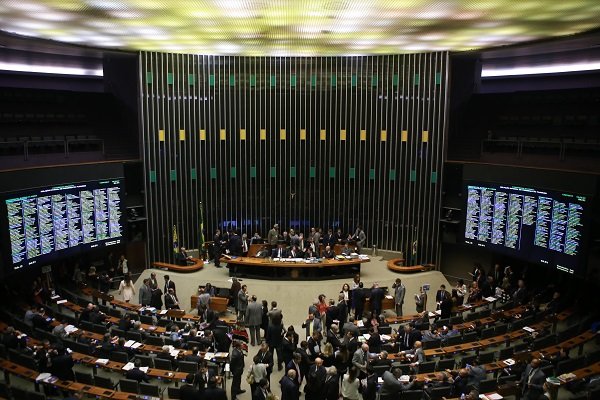This Content Is Only For Subscribers
To unlock this content, subscribe to INTERLIRA Reports.
The Chamber of Deputies approved on Tuesday (13) a bill that creates the so-called Organic Law of Police and Firefighters, with rules on organization, prerogatives and prohibitions for the categories. The text goes to the Senate. The matter was approved symbolically, without counting vote by vote – a method used only when there is consensus on the text. This is because the deputies removed the most controversial points from the proposal, which attempted to give autonomy to the PMs to make decisions without the approval of the state governors.
Armed soldiers at political events
The deputies changed the text to allow the active military to attend party-political events armed. The text provides for a ban only in situations where the military is in uniform.
Bachelor in Laws
The proposal also requires that the police officers who assume functions of command, leadership, direction and superior administration in the institution (known as “Chief Staff Officers”) have a bachelor’s degree in law. In the case of firefighters, some degree is also required, but states can define areas other than law.
Social networks and demonstrations
The proposal puts in the law a prohibition for the military to participate, even during off-duty hours, in party-political demonstrations or claims. In addition, the text prohibits the dissemination of political-partisan opinion, publicly or through social networks, using uniform, patent, graduation, or symbol of the institution. Still according to the proposal, active military personnel cannot be affiliated with a political party or union, nor appear in uniform at party political events, unless in an act of service.
General’s position
One of the points included in the approved proposal is the prediction that the position of inspector general of the Military Police and Fire Brigades will be exercised by an active general officer, following the same rules as the Brazilian Army.
Elected military
The proposal also establishes rules for the military who apply for an eligible position. In the case of less than 10 years of service, the military candidate will be removed from active service the day after the registration of his candidacy with the Electoral Justice. The military with more than 10 years of service passes to the remunerated reserve only if elected, on the day of his graduation, with remuneration proportional to the length of service.
Weapons
Regarding gun control, the text approved by the deputies specifies that the institutional firearms of the military police and military fire brigades must be registered in the Military Weapons Management System (Sigma), as well as the private weapons of their members who contained in their own records.
Our Analysis:
The withdrawal of devices highly criticized by experts and opponents of the current government demonstrates a defeat by the most radical wing of the President Bolsonaro government. To justify the approval of the text, the deputies stated that there is currently a vacuum in the legislation and that the norm that deals with the subject is from 1969, that is, almost 20 years before the promulgation of the Constitution and that the existence of an Organic Law brings more legal security to the role played by the Military Police. Isabel Figueiredo, a researcher and consultant for the Brazilian Forum on Public Security (FBSP), agrees that an organic law is needed to update the current rule, which was established during the military dictatorship. However, she criticizes the current project, saying that it was built “behind closed doors” and that specialized institutions in public security were only contacted after the text was ready. The main criticism of specialists is that the project would only benefit military police officers, not soldiers. As it does not contain anything about management improvement, benefits to society, or cost reduction.




